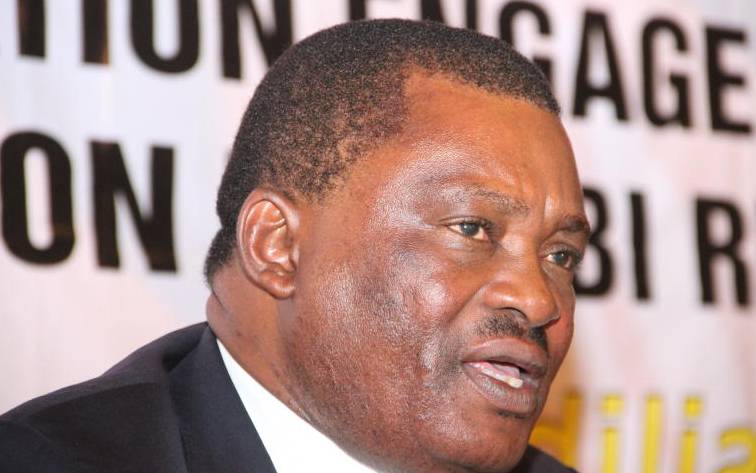×
The Standard e-Paper
Join Thousands Daily

National Speaker Justin Muturi presents his recommendations to the Building Bridges Initiative (BBI) taskforce led by Senator Yusuf Haji in Nairobi on March 10, 2020.[Edward Kiplimo, Standard]
National Assembly Speaker Justin Muturi has lashed out at the political culture of winner-loser negotiations entrenched in Kenyan politics under the premise of peace-making, terming it an infringement on voters’ rights.